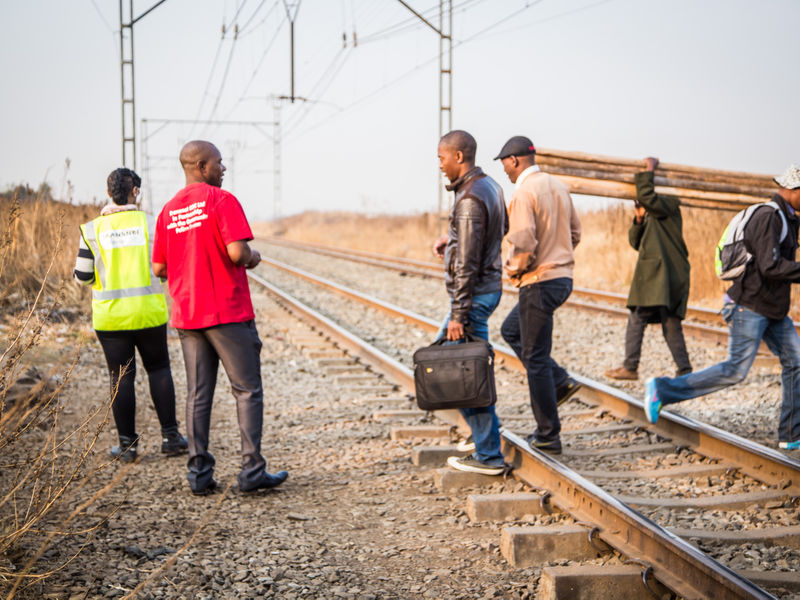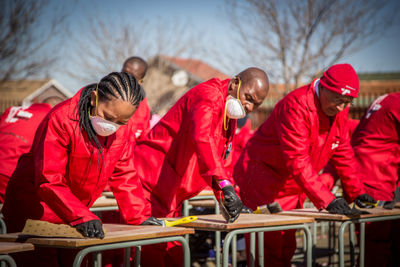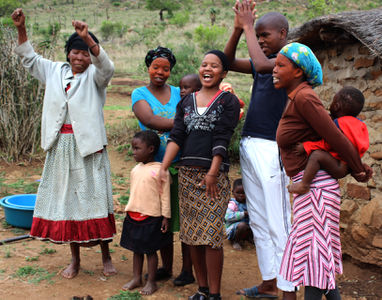Socio-Economic Infrastructure Development
SEID
Community centres, food gardens, rail safety programmes... the Socio-Economic Infrastructure Development arm of the Transnet Foundation has taken on a range of projects.

The Corporate Social Investment (CSI) Unit of Transnet
Community centres, food gardens, rail safety programmes... the Socio-Economic Infrastructure Development arm of the Transnet Foundation has taken on a range of projects.

Community centres are being built at Idondotha and Ezinkhatheni, both in KwaZulu-Natal. The centre at Springs in Gauteng is being rebuilt after it was destroyed by fire in 2014; and those at Ireagh and Khuma in North West and Thokoza in Gauteng are extensively supported by the Foundation.

The centres helped 32 744 clients last year, saving them the R832 403 they would have spent on transport to centres farther away. The centres also hosted some important gatherings: at Ireagh, there was a rail safety week and at Khuma, rail safety presentations; and career expos are planned. In addition, the Thokoza centre hosted a workshop on child abuse and the prevention of domestic violence during last year’s 16 Days of Activism Against Women and Child Abuse.
Food gardens have been established and maintained at Springs, Ireagh and Khuma and there’s a new one on the way at Thokoza. Vegetables grown in the gardens benefitted more than a thousand community members. And in Thokoza, seedlings were donated to a primary school and a daycare centre.

Transnet does not decide on its own what facilities and services communities require. Local Organising Committees, established from among residents when the Phelophepa healthcare trains come through, meet with key stakeholders, identifying the community’s needs and suitable sites. These stakeholders include national and municipal representatives.
Msunduzi in KwaZulu-Natal, for example, is on track to receive a community centre and food garden – the municipality has donated land for the purpose.
The infrastructure programme began in 2001 as the Container Assistance Programme, donating and repurposing containers in areas sorely in need of them. The CAP donated more than 50 containers upcycled as satellite police stations, classrooms, clinics, community and multi-purpose centres. The containers are still in use, while the programme has evolved into brick-and-mortar structures and food gardens.